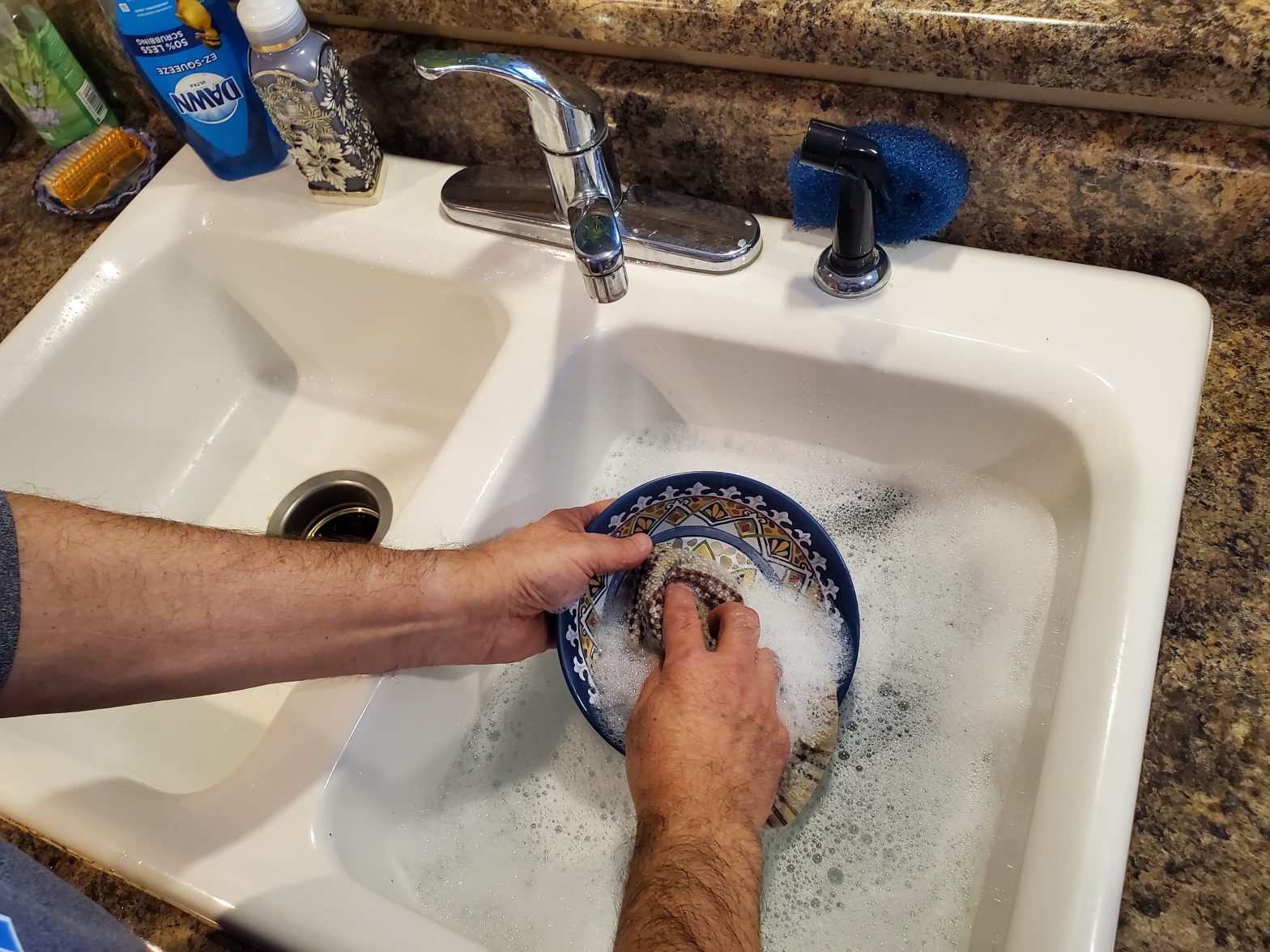By Donna Richard
“Turn it over to God,” a family member asked me, “Just how do you do that?” As a new believer she wasn’t sure. As an old believer, I wanted to give an answer but I have found it difficult over the years to turn my own worries and concerns over to God.
When asked that question, I felt the Holy Spirit gave me an example.
I said, “If I am having a really bad headache or hurting in my back and yet the dinner dishes need to be cleaned up and put away, I can ask my husband to do that task. Typically, I do the dishes in our household, but I know that if I ask him to do the dishes, he will gladly take on the task. Then I can sit back with a heating pad on my back and just rest until I feel better. I totally trust he will accomplish the thing that I can’t do. However, I could ask my husband to do this chore and then sit there and feel guilty, worry that he won’t do it like I want it done or that he will quit before the job is finished all the while making my body, and now my head, feel even worse. I wonder to myself whether I have really turned it over.”
My relative seemed to understand that example of “turning it over to God” then resting in the knowledge that God will take care of the situation.
Fast forward a few weeks. I am praying for the health of a family relative, another relative has had major water damage in his home rendering it unlivable for months, another is traveling long distances weekly for a job with an old car and another is struggling with several areas in her life.
As a momma and friend, when they hurt, I hurt. As I pray, I feel myself getting anxious. I know that is not what God wants for me. I recall my word picture of “turning it over to God.” I catch myself and realize, I am not trusting God to do the job, to work in the situations my relatives are facing. I haven’t “turned it over to God,” trusting that He will take care of their situations as I continue to fret and worry.
So, I ask the Holy Spirit, “How am I to trust?” He replies through the Word.
“Be still, and know I am God.” Psalm 46:10a
“Be still and wait patiently for God.” Psalm 37:7a
Stillness: an absence of movement or sound.
When I am still, I am to KNOW God is in control. I am to wait patiently for Him to work in the situations of those I love and care about.
More direction from the Word.
“In the multitude of my anxieties within me, Your comfort delights my soul.” Psalm 94:19
“You keep him in perfect peace whose mind is stayed on You, because he trusts in You.” Isaiah 26:3
God comforts us and gives us perfect peace. We are to trust.
Trust: firm belief in the reliability, ability or strength of someone
In the book of Ruth from the Old Testament, we watch Ruth as she waits on Boaz. Ruth had followed Naomi’s instructions to ask Boaz to fulfill his obligation as kinsman-redeemer to her. Her entire future—and Naomi’s—hinged on Boaz’s response. Naomi told Ruth to be still, meaning she should wait patiently.
Ruth 3:18 (NKJV) “Then she said, “Sit still, my daughter, until you know how the matter will turn out; for the man (Boaz) will not rest until he has concluded the matter this day.”
Because I trust God’s character of faithfulness, being purposeful, having mercy and being our provider, I can turn over these situations and then sit patiently waiting for Him to act in His perfect timing. Thus, my goal in prayer is to “turn it over to God” and to stop stressing; be still; trust and wait patiently on Him!
